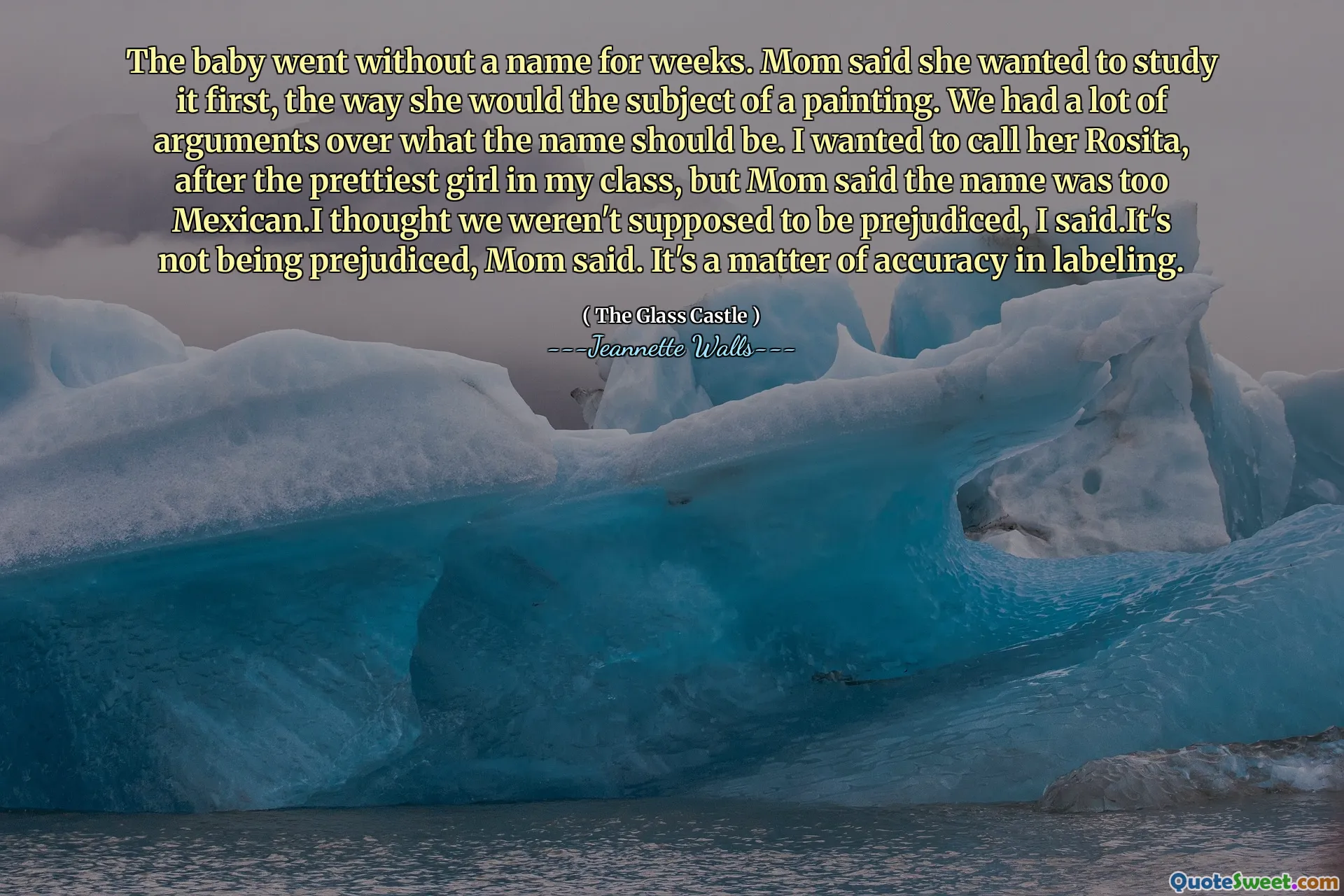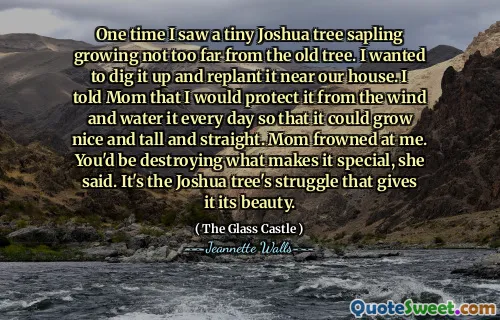
The baby went without a name for weeks. Mom said she wanted to study it first, the way she would the subject of a painting. We had a lot of arguments over what the name should be. I wanted to call her Rosita, after the prettiest girl in my class, but Mom said the name was too Mexican.I thought we weren't supposed to be prejudiced, I said.It's not being prejudiced, Mom said. It's a matter of accuracy in labeling.
The baby remained unnamed for several weeks, as the mother expressed a desire to observe her child before deciding on a name, likening it to studying a subject for a painting. This process sparked numerous disagreements about what the child should be called. The narrator proposed the name Rosita, inspired by a classmate, but the mother dismissed it, claiming it was too Mexican.
This led to a discussion about prejudice and naming. The narrator questioned the mother’s stance, believing they should not harbor biases. The mother clarified her point, stating that her concern was about precision in naming rather than prejudice, highlighting a tension between cultural identity and personal affection in the naming process.











